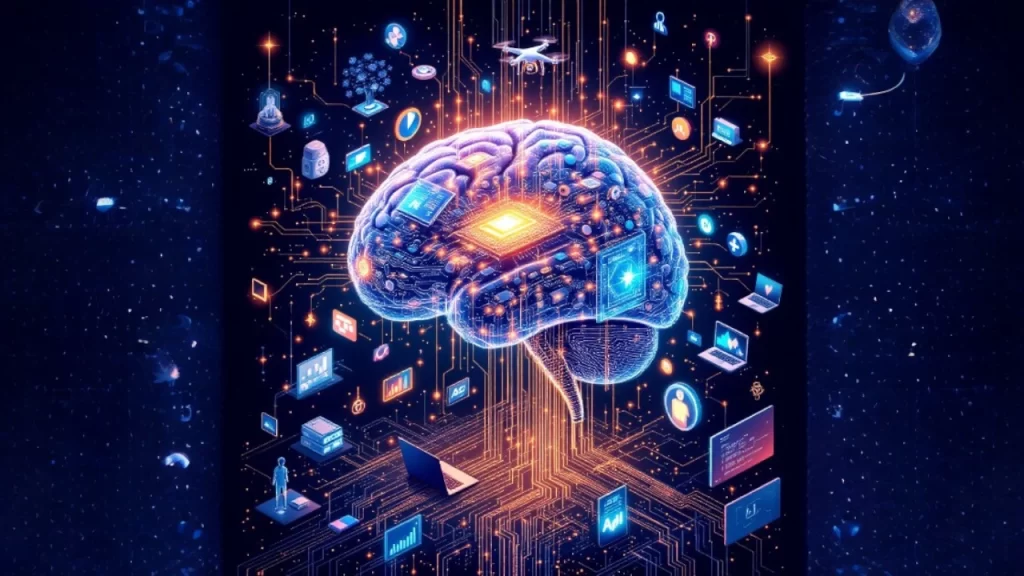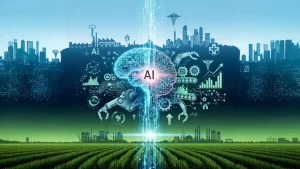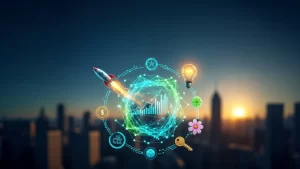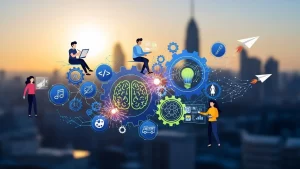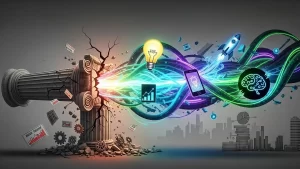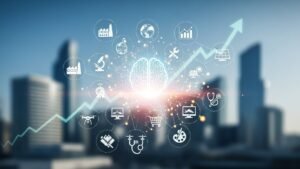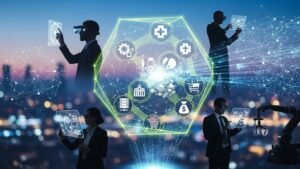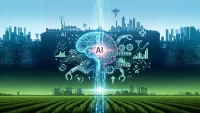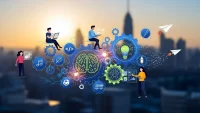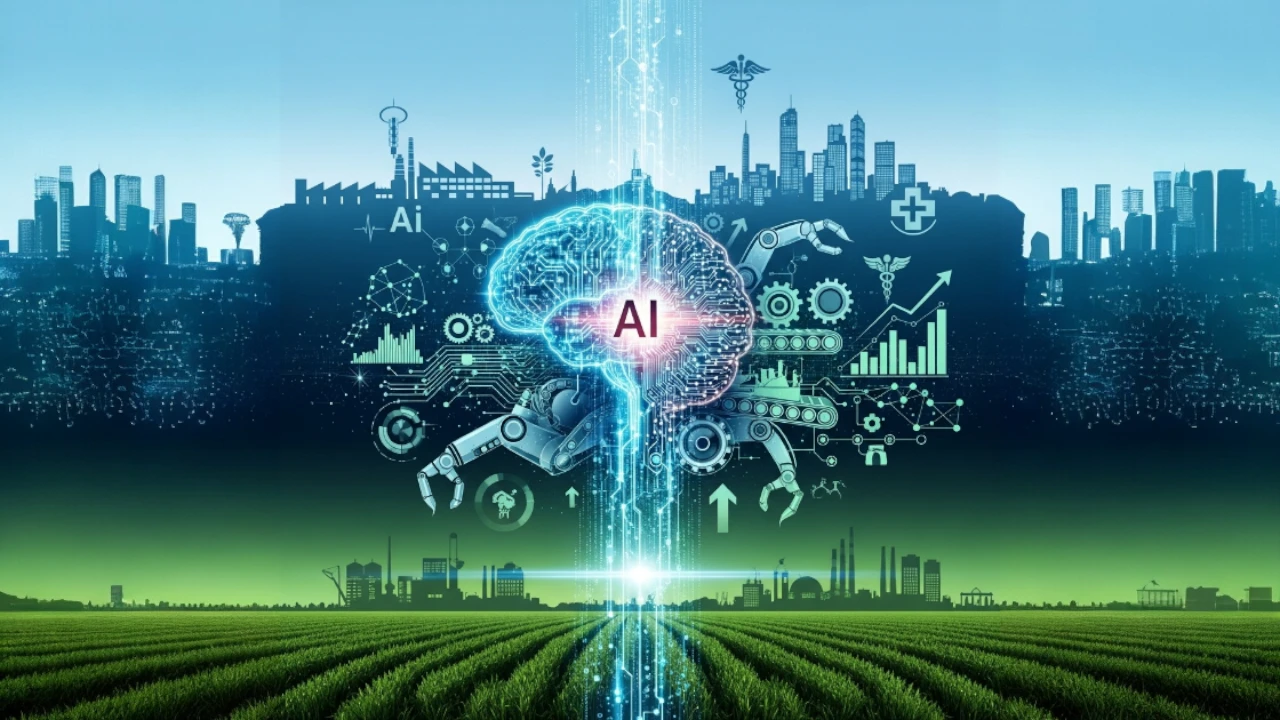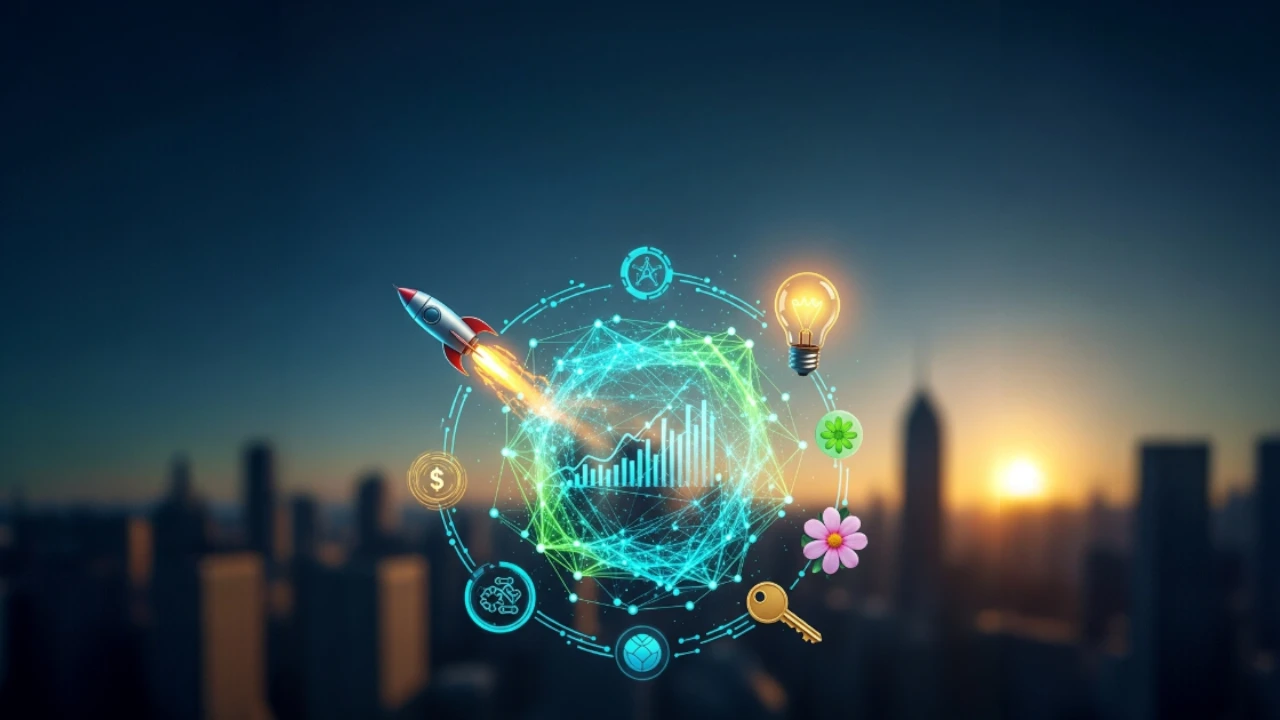The business landscape is evolving at an unprecedented pace, and artificial intelligence (AI) sits at the heart of this transformation. From automating routine tasks to enabling data-driven decision-making, AI is reshaping industries in ways we never imagined.
Whether you’re in healthcare, finance, retail, or manufacturing, AI-powered tools are unlocking new efficiencies, enhancing customer experiences, and driving competitive advantage. Let’s explore how AI is fueling innovation across every sector.
Table of Contents
ToggleWhat Makes AI a Game-Changer for Businesses?
AI isn’t just a buzzword—it’s a powerful tool that enhances productivity, reduces costs, and uncovers hidden opportunities. Key advantages include:
- Automation of repetitive tasks – Freeing up human workers for strategic roles
- Predictive analytics – Forecasting trends with unmatched accuracy
- Personalization at scale – Delivering tailored customer experiences
- Enhanced decision-making – Leveraging big data for smarter insights
With AI adoption accelerating, businesses that fail to adapt risk falling behind.
AI in Healthcare: Saving Lives with Smarter Diagnostics
The healthcare sector is leveraging AI to improve patient outcomes and streamline operations.
Early Disease Detection
AI-powered imaging tools analyze X-rays, MRIs, and CT scans faster than human radiologists, detecting conditions like cancer earlier.
Drug Discovery & Development
Machine learning models predict how compounds will interact, speeding up drug research and reducing costs.
Personalized Treatment Plans
AI analyzes patient data to recommend customized therapies, improving recovery rates.
AI in Finance: Smarter Banking and Fraud Prevention
Financial institutions use AI to enhance security, optimize investments, and improve customer service.
Fraud Detection & Risk Management
AI algorithms monitor transactions in real-time, flagging suspicious activity before losses occur.
Algorithmic Trading
Machine learning analyzes market trends, executing high-frequency trades with precision.
Chatbots & Virtual Assistants
Banks deploy AI-powered chatbots to handle customer inquiries 24/7, reducing wait times.
AI in Retail: The Future of Personalized Shopping
Retailers are using AI to create seamless, hyper-personalized shopping experiences.
Recommendation Engines
Platforms like Amazon and Netflix use AI to suggest products based on browsing history.
Inventory & Supply Chain Optimization
AI predicts demand fluctuations, preventing stockouts and overstocking.
Cashierless Stores
Computer vision and sensors enable checkout-free shopping (e.g., Amazon Go).
AI in Manufacturing: Smarter Factories, Fewer Errors
Manufacturing is undergoing an Industry 4.0 revolution, with AI optimizing production lines.
Predictive Maintenance
AI detects machinery wear and tear before breakdowns happen, minimizing downtime.
Quality Control Automation
Computer vision inspects products for defects with superhuman accuracy.
Robotic Process Automation (RPA)
AI-driven robots handle assembly line tasks with precision and consistency.
AI in Marketing: Hyper-Targeted Campaigns That Convert
Marketers harness AI to refine strategies and maximize ROI.
Customer Segmentation & Personalization
AI analyzes behavior to segment audiences and tailor messaging.
Programmatic Advertising
Automated ad buying ensures the right ads reach the right people at the right time.
Sentiment Analysis
AI scans social media to gauge brand perception and adjust campaigns accordingly.
AI in Transportation: The Road to Autonomous Vehicles
From logistics to self-driving cars, AI is redefining mobility.
Route Optimization
AI calculates the fastest, most fuel-efficient delivery paths.
Autonomous Trucks & Drones
Self-driving vehicles reduce accidents and lower shipping costs.
Traffic Management Systems
Smart AI systems ease congestion in real-time.
Challenges and Ethical Considerations
While AI offers immense benefits, businesses must address:
- Data privacy concerns – Ensuring compliance with regulations like GDPR
- Bias in AI models – Preventing discriminatory algorithms
- Job displacement fears – Reskilling workers for an AI-driven economy
FAQs About AI in Business
Which industries benefit the most from AI?
Healthcare, finance, retail, and manufacturing see the highest AI adoption rates.
Can small businesses afford AI?
Yes! Cloud-based AI tools (like chatbots and analytics platforms) are cost-effective.
Does AI replace human jobs?
AI automates tasks, not roles—it often creates new job opportunities in tech and oversight.
How accurate is AI in decision-making?
With quality data, AI predictions can surpass human accuracy in many cases.
What’s the future of AI in business?
Expect more AI-human collaboration, with AI handling analytics while humans focus on creativity and strategy.
Final Thoughts: Embrace AI or Get Left Behind
AI isn’t just the future—it’s the present. Businesses that integrate AI now will lead their industries, while those that delay risk obsolescence.
Ready to explore AI solutions for your business? Start with one application—whether it’s chatbots, predictive analytics, or automation—and scale from there. The AI revolution is here—will you be a part of it?
For Further Reading:
- McKinsey: The State of AI in 2024 (External Link)
- Harvard Business Review: AI-Driven Business Strategies (External Link)
The age of AI is transforming business—don’t miss out! 🚀

